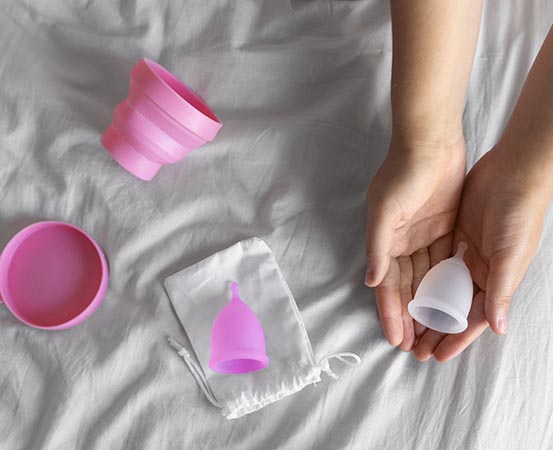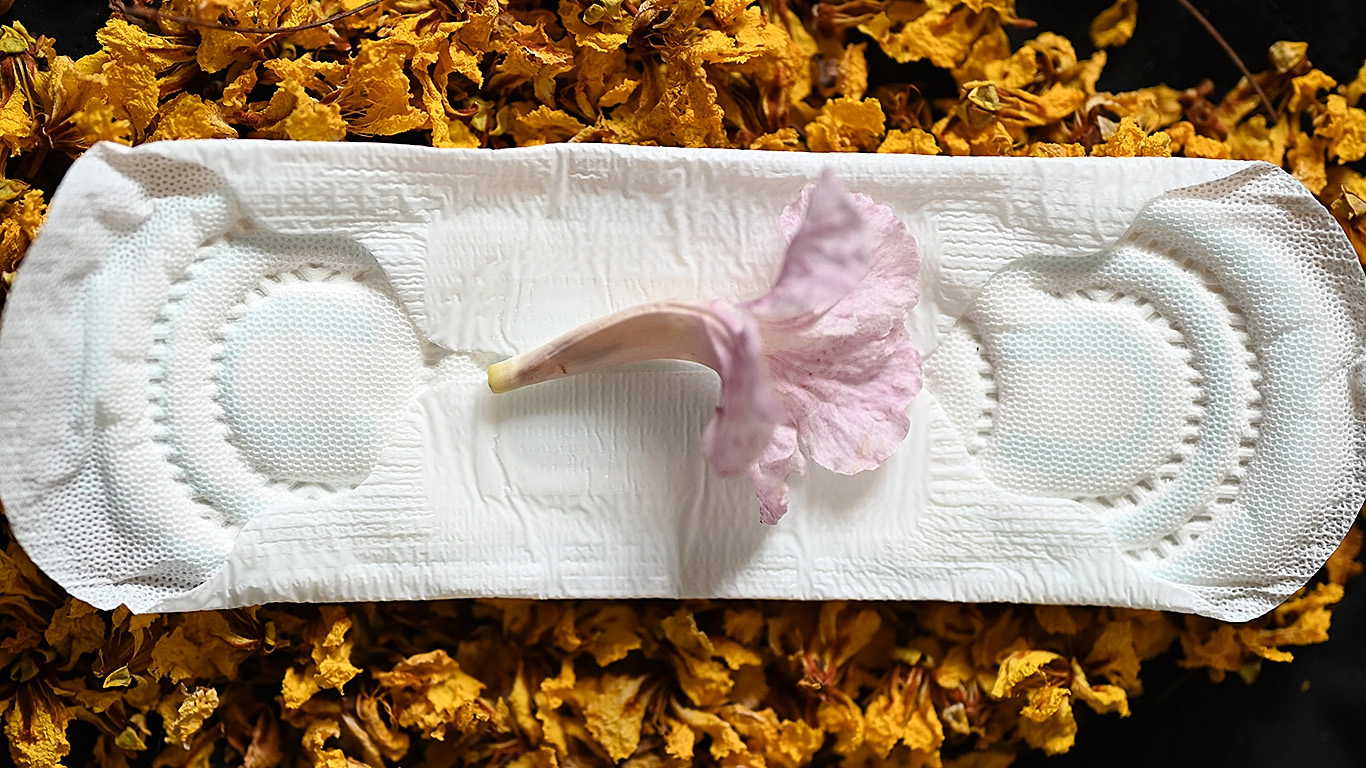
Concerns about staining during periods can overwhelm many women. But according to experts, newer period products are designed not only to ensure safe and risk-free periods but also to provide leakage protection and ensure environmental sustainability.
Different types of period products
“There are multiple products, like pads, tampons, period pants and menstrual cups. Now, many women are switching to menstrual cups. It is eco-friendly and cost-effective,” says Dr Sneha Rajiv, obstetrician and gynaecologist, Sparsh Hospital, Bengaluru.
A study based on non-reusable and reusable period products published on Plos.org focuses on the use and accessibility of reusable products (menstrual cups, reusable pads and menstrual underwear) as they are gaining more attention. However, according to the study, non-reusable products (tampons or pads) are more accessible than reusable ones.
Menstrual cups
It is a small funnel-shaped, reusable cup made of medical-grade silicone. It helps collect the blood instead of absorbing it.
Usage
“Menstrual cup collects blood instead of soaking it, so the chance of infection is low. It is safe to use for eight to 10 hours Menstrual cups can be cleaned with tap water,” says Dr Sushma Tomar, consultant obstetrician and gynaecologist at Fortis Hospital, Mumbai.
“The usage of the menstrual cup also depends on the blood flow and cup size,” says Dr Rajiv. A teenager would need a small sized cup, someone who is sexually active would need medium and those who have given birth would need a large size, she points out.
Dr Rajiv admits that the menstrual cup is the best product she has come across so far. “It gives you the freedom to do anything. Users only need to find the right size and learn to use it the proper way,” she says.
Dr Tomar points out that menstrual cups are best for leakage protection. “If a woman feels uncomfortable with a menstrual cup, she can also use sanitary pads with panty liners to avoid leakage,” says Dr Tomar.
Mugdha (name changed), a 25-year-old corporate employee from Bengaluru, who made the switch to menstrual cups three years ago says that she was quite conscious when she used sanitary pads, even while she was sleeping. “The switch to menstrual cups not only gave me the freedom to walk fast but also allowed me to swim during my periods,” she says.
Disposable sanitary pads
Disposable pads are thin pads made with absorbent materials (super absorbent polymers) to absorb menstrual blood. It is for one-time use only.
Usage
“Disposable pads must be changed after four hours (depending on the blood flow) to avoid infection,” says Dr Tomar.
Tampons
Tampons are made of cotton or rayon and sometimes can be a blend of both. It looks like little plugs and fits inside the vagina to soak the menstrual blood.
Usage
“Tampons should be changed every four hours,” says Dr Rajiv. “Keeping a tampon for a long (more than six hours) even during less flow can increase the risk of toxic shock syndrome.” Toxic shock syndrome is a serious medical condition caused by toxins due to bacterial infection.
The reusable cloth pad
Reusable pads are made of cotton and synthetic fabrics or charcoal-based materials for better soaking ability.
Usage
“Reusable pads should be changed every four hours. They can be used again after washing them in soap water,” says Dr Tomar.
Period underwear
Period underwear or menstrual underwear looks like normal underwear, although it consists of extra layers filled with highly absorbent materials.
Usage
The period underwear has to be changed four to six hours, depending on the flow, says Dr Rajiv.
A word of caution
Dr Rajiv stresses the importance of the correct usage of these products. “Incorrect usage of period products may accelerate vaginal infections. Proper usage of the product not only provides better protection but also reduces bad odour and infection.”
Takeaways
- Menstrual cups come in many sizes. Find one that best fits you.
- Menstrual cups are more eco-friendly than disposable pads as they generate less waste.
- Keeping a tampon for long can accelerate the risk of toxic shock syndrome.

















